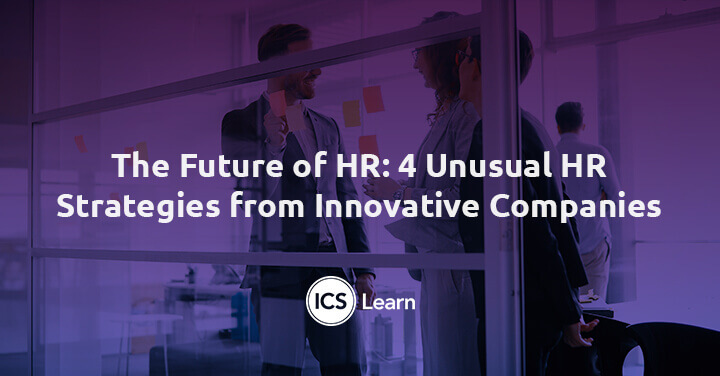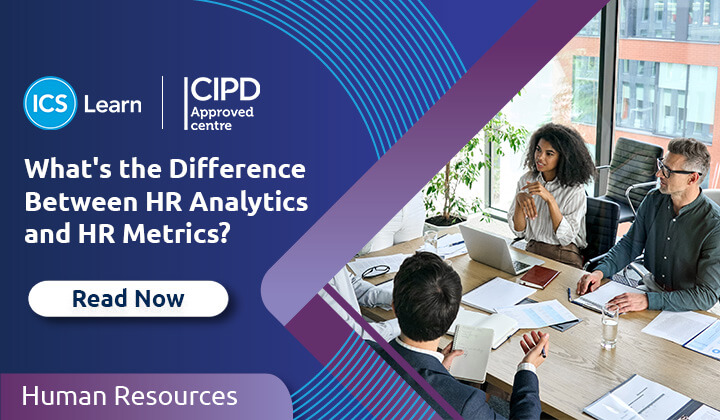Human Resources

The Future of Business: How AI is Changing the Game

06 September 2023 - 5 min read
Ever since its initial introduction to the world, artificial intelligence (AI) has proved it’s become a game changer that is essentially feeding into every aspect of our lives. While it was once something associated with sci-fi movies and a thing of the distant future, AI has grown exponentially, even turning into a household staple pretty much overnight - hi Alexa!
Although mainstream society’s acceptance of AI has picked up pace over the past few years, AI’s effects and capabilities for the business world have been a topic of conversion for a while.
From streamlining business operations and automating repetitive tasks, to crunching endless amounts of data in record time to identify business risks and opportunities, there’s no doubt that AI is changing the world of work as we know it, and it’s becoming essential for businesses to maintain a competitive advantage.
In this blog, we explore how AI is changing the future of business and particular roles within various sectors.

AI is Changing Marketing
You’ve most likely already encountered many examples of AI in marketing without even realising it. For example, have you ever received product recommendation from a brand, based on your browsing history and recent purchases? Well, that’s AI’s work at its finest, being utilised by marketing professionals to create more engaging and personalised customer experiences.
Along with that, chatbots are quickly becoming a standard practice many organisations use on their website. With chatbots, customers are receiving instantaneous, personalised responses to their enquiries, while companies reduce service costs and increase efficiency. According to IBM statistics, chatbots have the potential to save up to 30% for businesses in total costs, by diminishing chat support and automating the process.
AI also has the ability to sort through vast datasets, extracting real-time, holistic data from limitless sources of information available online. That data can then be analysed by marketing professionals to identify market trends, patterns and make data-driven decisions. These are often referred to as predictive analytics, and can be the secret to getting ahead of the competition, using them to optimise marketing campaigns, adapt to changing customer behaviours and identify new opportunities for growth.
McKinsey & Company found that companies which make use of customer analytics are 23 times more likely to outperform their competitors in terms of customer acquisitions, as well as being 19 times more likely to achieve above-average profitability.
Bring value to your company with one of our fully accredited CIM marketing certifications.

AI is Changing Human Resources
Developments in AI have enabled HR departments across different industries to leverage algorithms and machine learning, in an effort to streamline their work, reduce biases, make informed decisions and enhance their analysis. Similarly to other sectors mentioned in this blog, the application of AI in HR allows professionals to avoid repetitive tasks through automation, enabling them to spend more time on tasks that require emotional intelligence such as interviewing and resolving employee disputes.
If you’ve applied for a job opening recently then you’ve definitely experienced a way in which HR departments benefit from the adoption of AI in their operations. Online skills tests, which can be designed and customised to match the roles requirements and candidates’ level of difficulty, enabled HR professionals to screen through and assess job applications much faster than they previously would.
According to Criteria Pre-Employment Testing, 72% of people have admitted to having lied on their resume about their skills and experience making screening tests more important than ever in order to address the current talent skills gap. As a result, over 65% of today’s employers use some sort of pre-employment test to hire the right candidate for the job opening, while the automation of this process can save HR managers many hours from reviewing job applications and their reliability.
Not only that, but AI can also prove valuable in automating onboarding for new hires, through the employment of AI-powered chatbots, which have the capability to:
- Verify employee documents
- Conduct induction training
- Handle administrative tasks such as providing access to the organisations’ hardware and software.
This allows new employees to feel supported at all times, while freeing up time for HR professionals to focus on more complex tasks. Not only that, but through the automation of onboarding, the process can become more personalised towards the individual candidate. That is because AI has the capability to analyse each applicant’s data, such as their skills and preferences, and customise their training accordingly.
Enhance your organisation’s HR capabilities with one of our fully accredited CIPD HR qualifications.

AI is Changing Procurement & Supply
Procurement is an industry where mundane and repetitive tasks take up a big part of the workload and can be quite time-consuming. By automating many of the procurement processes, teams will have more time to focus on more engaging tasks such as supplier negotiations and devising strong sourcing strategies. Such automated processes can include:
- Invoice & payments management
- Purchase orders processing
- Purchase requisition
- Vendor onboarding & management
- Contract approval & management
- Sourcing
Contract management will become a breeze with the utilisation of AI, automating contact review and analysis. Unlike a human reading endless amounts of contracts, AI algorithms can quickly and easily extract key terms, clauses and obligations from contracts.
Through this, the contact management process is streamlined, minimising human error, reducing significantly the time and effort required for manual analysis and ultimately improves contract compliance. Based on a survey performed by DocuSign, 53% of contracting professionals expect AI to support human decision-making and reduce error in the contact management process.
Not only that, but with the use of AI to analyse historical data, past market trends and external factors, future demand predictions can be made with greater accuracy. AI-driven demand forecasting models can make supply demand predictions with improved precision, allowing procurement professionals to optimise inventory levels, avoid stock outs and overall refine supply chain operations, thus improving operational efficiency and customer satisfaction.
Understand the value of AI in the procurement and supply industry with one of our fully accredited CIPS certifications.

AI is Changing Project Management
Project managers often have countless administrative tasks they have to work through on a regular basis. From scheduling meetings, to sending out reminders and updates about how a project is progressing, these tasks can be extremely time-consuming.
Automating these tasks can enable project managers to focus more of their time and attention towards higher-level and complex tasks, such as problem solving and project progress monitoring. Research conducted by Gartner suggests that by 2030, 80% of current project management tasks will be run by AI, machine learning and natural language processing.
While such figures may be alarming, Planisware, a global provider of software solutions for project portfolio management, explains that while the “potential capabilities of artificially-intelligent project management assistants are boundless”, they are just that assistive. This means that they’re only as good as the input they receive, making them reliant on experienced project management professionals to provide accurate and consistent data processing.
In line with that, AI has the capacity to develop, within seconds, a myriad of handy tasks including:
- detailed schedules customisable to each project’s need and expectations,
- proposed task durations,
- requirements,
- milestones and
- more, saving project managers hundreds of hours of manual labour.
Improving risk management is a crucial aspect of project management and one area where AI can be very helpful. Identifying potential risks early on in the project cycle can save companies a lot of money and time, ensuring the project is completed successfully. While an experienced project manager can draw potential risks based on their experience, that’s not entirely accurate and, as said, comes with experience.
Alternatively, generative AI can generate a detailed risk log, simply by explaining to the software the context of the project. In seconds, AI draws out, categorises and ranks the risk log for easier analysis, while also providing detailed description of the risks, mitigation steps and effective contingency plans. Simply think of it as your own personal assistant that has the ability to pull and analyse data available online quickly and effectively, saving you so much time and effort from doing it manually.
Learn how to employ advanced systems in your organisation with one of our fully accredited PRINCE2 certifications.

AI is Changing Finance
AI and machine learning have presented many opportunities for those in finance, such as accountants and bookkeepers, to improve the way they work. Similar to other industries, AI can take over many time-consuming admin tasks for accountants, due to its ability to process and interpret data timely and accurately.
For example, Cloud-based accounting software, FreeAgent, uses machine learning to automatically identify and interpret bank transactions directly imported from clients’ bank feeds. As a result, accountants have more time to provide their clients with strategic advice and insights on their banking and financial health.
To add, employing the use of AI in the accounting industry, in particular, can prove beneficial in reducing fraud and non-compliance by a great degree. According to a global survey, which consisted of over 500 financial services professionals, 31% of respondents reported that fraud detection involving payments and transactions was the top use of AI. This is attributed to the fact that AI systems have the capacity to identify irregular and potentially fraudulent activity, flagging it up for further review so the appropriate action can be taken. Identifying fraudulent transactions early can help reduce costs and save time, while helping add value to accounting services.
All in all, the application of AI in any industry saves precious time professionals could be utilising in more valuable tasks, rather than entering figures or balancing columns in a spreadsheet. Accountants may choose to spend that time then providing their clients with greater insight on their finances. Since AI, at the moment, cannot replicate the more creative tasks currently performed by the human workforce, such as drawing meaningful conclusions from data, accounting professionals are required to break down observations made from the data, and draw up an action plan for their clients.
Become a fully qualified accounting professional with one of our accredited AAT accounting certifications, and learn how to leverage AI in your services.
With automated processes taking over data entry tasks, auditing and analysis, AI has once and for all changed the game. With the ability to crunch through endless amounts of data, saving time and cost along the way, the application of AI in businesses can - and will - help add value to organisations around the globe.
Download Your Free CIPD Course Guide
Get information on our CIPD courses
Share this post
The Future of HR: 4 Unusual HR Strategies from Innovative Companies
With the working world constantly changing, we’re reviewing a few innovative companies that are currently pushing the boundaries of conventional HR strategy.
6 Tips for Successful Talent Management in HR
Effective talent management is essential when it comes to running an effective HR department. Here are 6 tips for successful talent management in HR.
What's the Difference Between HR Analytics and HR Metrics?
HR analytics and HR metrics are terms that are often used interchangeably, but did you know there's a definitive difference between the two? Find out more.















